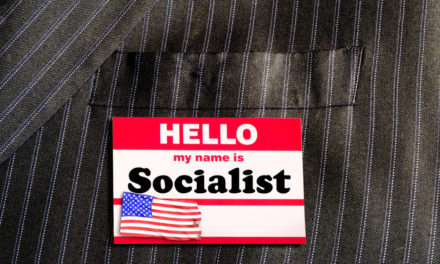Opinion: Is Venezuela a Preview of AOC’s Failed Socialist Agenda?

With Venezuela headed for total political and economic collapse, Republicans are pointing to it as yet another failed socialist model that will end in the country’s ruination.
Of course, those on the left, like Democratic Socialist Rep. Alexandria Ocasio-Cortez, D-N.Y., will argue that Venezuela is failing due to poor leadership rather than a true test of socialist ideas.
At first glance, Venezuela is far from socialist.
Government spending is reportedly about 40 percent of GDP, though, the statistics available aren’t fully reliable.
In comparison, U.S. government spending is about 37 percent of GDP.
Emerging economies can’t typically afford government spending on the same level as wealthier countries, and poorer countries that expand their governments before they’re ready generally face economic troubles — big government run amok, basically.
The rate of change also is an important factor to consider. Venezuela’s 40 percent spending is up from 28 percent in 2000, which is a fairly rapid increase.
The Venezuelan government’s free spending sent the message that the key to future riches was through courting government favor — not through starting new businesses.
Considering exports, which play a critical role for most developing economies by bringing in foreign exchange, providing contacts to foreign markets and by forcing parts of the economy to learn how to compete with the best around the globe.
But oil accounts for about 90 percent of Venezuela’s exports and, of course, those oil resources are owned and controlled wholly by the Venezuelan government.
Considering this all-important growth driver, Venezuela is in fact pretty close to socialism, according to Bloomberg opinion writer Tyler Cowen.
Chile has prudently managed its state-owned copper reserves (also a big export earner), but Venezuelan leaders have treated state oil money as a slush fund for themselves and their cronies, and furthermore they borrowed against future oil revenues. The daughter of former President Hugo Chavez, who died six years ago, is still reportedly one of the richest women in Venezuela. Of course that came largely from state resources, and it happened while the Venezuelan citizenry was sinking further into poverty.In fact, nationalizations under Chavez were numerous — encompassing much of the oil sector plus parts of the agriculture, transport, power, steel, telecommunications and finance industries. Even though many of those nationalizations were small in scale, the threat of further encroachments on private property rights discouraged investment and sent the wrong signal about where the nation was headed.And this may be the most important point: Socialism, capitalism and other systems matter not only for the conditions they create but because of the ideas they propagate. This is true even if these ideologies are followed incompletely or imperfectly.One simple way to trace that influence for Chavez is to look at Wikiquotes, where you will find plenty of utterances against globalization and the market economy. “Privatization is a neoliberal and imperialist plan,” he said in 2005. “Health can’t be privatized because it is a fundamental human right, nor can education, water, electricity and other public services. They can’t be surrendered to private capital that denies the people from their rights.” That rhetoric of victimization and absolute moralizing against markets doesn’t sound so different from a lot of what I hear from non-Venezuelans on social media.Like his praise for anti-capitalist, anti-American regimes such as Belarus and Iran, a lot of Chavez’s rhetoric might have been written off as political posturing. But it has continued under his successor, Nicolas Maduro, who has also failed to use his post to educate Venezuelans about the benefits of capitalism and globalization — in stark contrast to many East Asian leaders. Instead, the promotion of socialist ideas has helped to make Venezuelan society less economically robust and more vulnerable to collapse.And while many on the left are now keen to disavow any connection to the Venezuelan disaster, their earlier enthusiasm is on the record. Greg Grandin, writing in The Nation in 2013, offered a laudatory take on Chavez and suggested that Venezuela “might be the most democratic country in the Western hemisphere.” (He also argued, oddly enough, that Chavez “wasn’t authoritarian enough.”) Jeremy Corbyn, leader of the U.K.’s Labour Party, has also been a big Chavez fan, while Nobel laureate economist Joseph Stiglitz praised Venezuela’s economic policies in 2007 and declared that the risks of higher inflation were overrated.Yes, there are some exaggerations and mischaracterizations in the right-wing charge that Venezuela’s system is socialism, pure and simple. At the same time, the evidence shows that, for some parts of the ideological left, the cause for embarrassment is very real indeed.
No comments:
Post a Comment
Thanks for commenting. Your comments are needed for helping to improve the discussion.